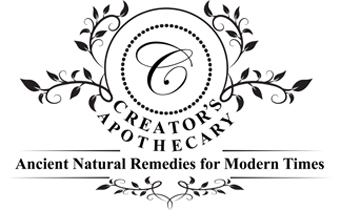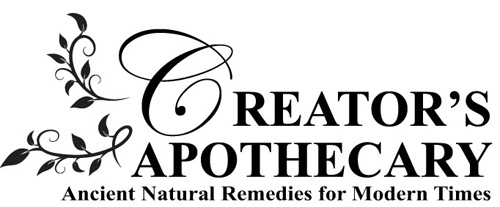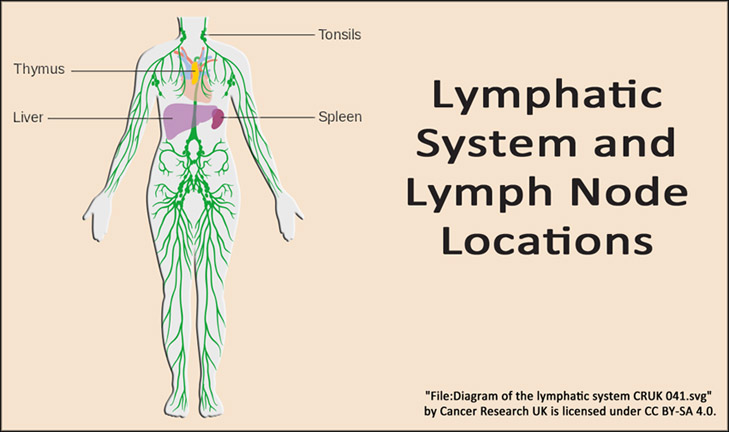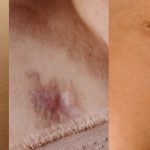Essential Oils Considered Lymphatic
The following list includes essential oils are considered lymphatic.
Lymphatic essential oils are oils that either decongest the lymph system, assist in relieving swollen glands, or stimulate circulation and lymph movement, and assist with toxin removal.
The lymphatic system is a network of tissues, vessels and organs that work together to move a colorless, watery fluid called lymph back into your circulatory system (your bloodstream). Some 20 liters of plasma flow through your body’s arteries and smaller arteriole blood vessels and capillaries every day. After delivering nutrients to the body’s cells and tissues and receiving their waste products, about 17 liters are returned to circulation by way of veins (bloodstream). Unlike the blood system, the lymph system moves very slowly because it doesn’t have a pump and depends on its return back UP your body by way of veins. When your veins get clogged or congested, so does your lymph.
Because there is no lymph PUMP, it is essentially up to you to keep your veins healthy to ensure your lymph does not become stagnant or toxic. Having a sluggish lymph system can lead to chronic illness, sinus issues, poor circulation, allergies, cellulite, fluid retention, puffy eyes, allergies, weight gain.
Essential Oil General Safety Information: Essential Oils (EOs) are highly concentrated extractions of plants and can be harmful if not used carefully. Incorporating EOs into your lifestyle should not cause unnecessary work, but it is important to heed all safety precautions. Never take EOs internally, even if a label say it is safe for consumption by mouth. Never put undiluted EOs directly onto your skin (NEAT) to avoid sensitization of skin, and never apply NEAT to broken skin. Some EOs can cause irritation, sensitization or allergic reactions in some individuals. When using a new oil topically for the first time, perform a skin patch test on a small area of the skin. Some EOs are phototoxic and can cause irritation, inflammation, blistering, redness and/or burning when exposed to UVA rays of the sun. Discontinue using EOs immediately if you encounter any irritation, redness or reaction. Take care when adding EOs directly to bathwater. EOs do not stayed mixed in water, and can, therefore “pool” causing the EO to touch body areas in full strength with the potential for irritation. Some EOs should be avoided during pregnancy or by those with asthma, epilepsy, or other health conditions. Avoid using EOs near the genitals, mouth, nose, eyes and ears. Extreme caution should be used with children and elderly (due to medication mix). Care should be taken when using EOs near animals as not all EOs are safe to use on dogs, cats, birds, horses or other pets. EOs are flammable; keep them away from fire hazards. These statements have not been evaluated by the Food and Drug Administration. These oils are not intended to diagnose, treat, cure or prevent any disease.
Lymphatic Essential Oils include:
Allspice (Pimenta Berry) deep lymphatic stimulant, and especially indicated in chronic infections
Amyris (Amyris balsamifera)- lymphatic decongestant
Atlas Cedar (Cedrus atlantica) – lymphatic stimulant/decongestant with swollen glands; cellulite (use with grapefruit). Atlas cedarwood acts as a good decongestant to both the venous and lymphatic circulation with its dry, bracing, astringing qualities. Use Lemongrass and Atlas Cedar for lymphatic decongestion and swollen glands. Use Laurel and Atlas Cedarwood for chronic lymphatic congestion. Use Tea Tree and Atlas Cedar for lymphatic decongestion and swollen glands.
Caraway (Carum carvi) – stimulates flow of lymph
Celery Seed (Apium graveolens) may help with lymphatic drainage
Clove Bud (Syzygium aromaticum L.) stimulation of deep lymphatic functions. Use with Niaouli/Tea Tree as lymphatic stimulant/detoxicant; use with laurel and black pepper as a lymphatic stimulant
Cumin (Cuminum cyminum) This oil may help with lymphatic congestion
Cypress (cupressus sempervirens) –is used for its anti-bacterial, anti-infectious, antimicrobial, and diuretic properties. In addition, it may function as a decongestant for the circulatory and lymphatic systems. Use for swollen lymph glands (use cypress and grapefruit). Use Scotch Pine, Cypress and Mastic for strong lymphatic decongestion of swollen glands. For strong venous and lymphatic decongestions use Yarrow and cypress.
Fennel (Foeniculum vulgare) – lymphatic – It may break up fluids and toxins, and cleanse the tissues
Frankincense (Boswellia Carterii Birdw. Boswellia sacra Fluckiger) – lymphadenitis
Geranium (Rose) (Pelargonium graveolens) swollen glands, lymphatic and venous decongestant. Geranium has been dubbed a woman’s oil for many of these reasons … this oil shows significant fluid decongestant and detoxicant actions that work in tandem on the liver, kidneys, uterus and the whole lymph- and venous blood-filled pelvic basin. When any of these organs are congest and burdened with metabolic toxins, Geranium is the remedy of choice. Grapefruit, Lemongrass and Geranium as a lymphatic decongestant when swollen glands are present. Geranium plus Green Myrtle (Myrtus communis L.) to be used for pelvic and lymphatic decongestion.
Grapefruit (Citrus x paradisi) lymphatic decongestant, it may also have a cleansing effect on the kidneys, the lymphatic system, and the vascular system. Lymphatic congestion, lymph stagnation, swollen glands and edema. Use Grapefruit, Lemongrass and Geranium as a lymphatic decongestant when swollen glands are present. Use Sweet Orange and Grapefruit for lymphatic decongestion for varicose veins, swollen lymph glands; topically also as a detoxican for skin and muscle toner.
Helichyrsum (Helichrysum angustifolia var. italicum) – detoxify and stimulate the liver cell function, lymph drainage
Laurel (Laurus nobilis L) swollen lymph glands from infections, lymphatic congestion. Use Laurel and Atlas Cedarwood for chronic lymphatic congestion. Laurel is absolutely on a par with the herbal remedy Echinacea, even down to stimulation of the superficial lymphatic microcirculation.
Ledum (or Labrador Tea) (Ledum groenlandicum) – inflamed lymph nodes
Lemon (Citrus limon) lymphatic system cleansing, lymphatic stimulant. Lymph stagnation, swollen glands, and edema. Use Lemon, Lemongrass and May Chang as a lymphatic stimulant in fevers. Lemon is the only citrus oil that will treat weakness of the nervous system, the liver and pancreas, as well as the vascular system, specifically toning and astringing those with a major venous blood supply. Lemon at the same time will systematically decongest these orangs if they are congested, particularly the liver, veins, capillaries and lymphatic ducts. Lemon oil will scour and dissolve any obstruction in its decongestant path, including stuck or sticky lymphatic fluid.
Lemongrass (Cymbopogon flexuosus) – lymphatic drainage, wake up the lymphatic system. Grapefruit, Lemongrass and Geranium as a lymphatic decongestant when swollen glands are present. Use Lemon, Lemongrass and May change as a lymphatic stimulant in fevers. Use Lemongrass and Atlas Cedar for lymphatic decongestion and swollen glands. Use Tea Tree and Lemongrass for venous and lymphatic decongestion, capillary stimulation, metabolic and microbial detoxicant for venous and lymphatic and capillary congestion and stagnation; for all forms of toxicosis in general.
Lime (Citrus aurantifolia) – lymphatic system cleansing
Mandarin (Citrus reticulata) – lymphatic
Marigold (Calendula Officinalis) – The flowers are current in the British Herbal Pharmacopoeia, specific for enlarged or inflamed lymph nodes
May Chang (Litsea cubeba) lymphatic decongestant, swollen glands. Use May Chang and Lemongrass as a lymphatic decongestant, diuretic and detoxicant for swollen lymph glands. Use Lemon, Lemongrass and May Chang as a lymphatic stimulant in fevers.
Niaoli (Melaleuca quinquenervia) venous and lymphatic decongestant, lymphedema
Onion (Allium cepa) onion has an ancient reputation as a curative agent … it has a sound reputation for correcting glandular imbalance and weight problems; it also improves lymphatic drainage which is often responsible for edema and puffiness.
Ravintsara (Cinnamomum camphora L) lymphatic stimulant and decongestant, detoxicant, diuretic: toxicosis with general eliminatory deficiency, esp. with swollen lymph glands. Use Ravintsara and Lemongrass for general toxicosis with swollen glands.
Red Myrtle (Myrtus communis ct. myrtenyl acetate) main clinical value lies in its good venous and lymphatic decongestant action on the circulation of the legs and pelvis.
Rose of Sharon/Cistus (Cistus ladaniferus, cistus ladanifer) – lymphatic
Mastic (pistacia lentiscus L.) cousin to Rose of Sharon, whose main use is for its strong astringent venous, lymphatic and venous restorative actions in severe congestive conditions such as pelvic blood congestion and its typical symptoms, including hemorrhoids; venous and lymphatic congestion with varicose veins, also useful for leg edema and cellulite. Use Scotch Pine, Cypress and Mastic for strong lymphatic decongestion of swollen glands.
Sandalwood (Santalum album L) lymphatic circulation, pelvis and lymphatic decongestant with varicose veins, phlebitis; ankle edema, swollen glands, lymphadenitis
Scotch Pine (Pinus sylvestris L.) lymphatic decongestant with swollen glands and edema. Use Scotch Pine, Cypress and Mastic for strong lymphatic decongestion of swollen glands. For pelvic organs, Scotch Pine is a detoxicant decongestant that acts equally on fluid, lymph and blood circulation.
Sweet Orange (Citrus sinesis) lymphatic. Use Sweet Orange and Grapefruit for lymphatic decongestion for varicose veins, swollen lymph glands; topically also as a detoxican for skin and muscle toner.
Tea Tree (Melaleuca alternifolia) lymphatic decongestant and lymphatic stimulant, swollen glands. Use Tea Tree and Atlas Cedar for lymphatic decongestion and swollen glands. Use Tea Tree and Lemongrass for venous and lymphatic decongestion, capillary stimulation, metabolic and microbial detoxicant for venous and lymphatic and capillary congestion and stagnation; for all forms of toxicosis in general.
Thyme (Thymus vularis L) use Thyme ct. Thymol and Niaouli for strong broad-spectrum anti-infective, immunostimulant, lymphatic stimulant and detoxicant in a wide range of acute or chronic bacterial, viral and fungal infections of all body systems in general
Vetiver (Vetiver zizanioides) is an effective detoxicant where connective tissue slackness has led to metabolic toxicosis, capillary-lymphatic stagnation and compromised immunity.
Wintergreen (Gaultheria procumbens) – draining and cleansing the lymphatic system; is great for removing discomfort associated with the inflammation of bones, muscles, and joints. It may also help cleanse the lymphatic system. Caution: AROMATHERAPY /HOME USE: None. ‘Avoid both internally and externally.’110 Toxic, irritant and sensitizing – an environmental hazard or marine pollutant. The true oil is almost obsolete, having been replaced by synthetic methyl salicylate.
Winter Savory (Satureja montana L) lymphatic detoxicant, lymphadenitis, venous and lymphatic decongestant. Caution: AROMATHERAPY /HOME USE: None. ‘Should not be used on the skin at all.’93 Dermal toxin, dermal irritant, mucous membrane irritant. Avoid during pregnancy.
Yarrow (Achillea millefolium) edema, lymphatic. For strong venous and lymphatic decongestions use Yarrow and cypress.
Yellow Birch (Betula alleghaniensis) is great for removing discomfort associated with the inflammation of bones, muscles, and joints. It may also help cleanse the lymphatic system.
REFERENCES:
- Aromatica: A Clinical Guide to Essential Oil Therapeutics (Vol. 1 & 2) by Peter Holmes LAc, MH
- Reference Guide for Essential Oils by Connie and Alan Higley
- The Encyclopedia of Essential Oils by Julia Lawless
- Medifocus Guidebook on Lymphedema: https://www.lymphedema-guidebook.com/
- Lymphatic System: Parts & Common Problems (clevelandclinic.org) https://my.clevelandclinic.org/health/articles/21199-lymphatic-system
- 93. Tisserand, R. The Essential Oil Safety Data Manual, p.69
- 110. British Herbal Pharmacopoeia, 1983 p.233.
“I praise you because I am fearfully and wonderfully made; your works are wonderful, I know that full well.” Psalm 139:14 “Grace to you and peace from God our Father and the Lord Jesus Christ.’ Philippians 1:2
Til next time,





